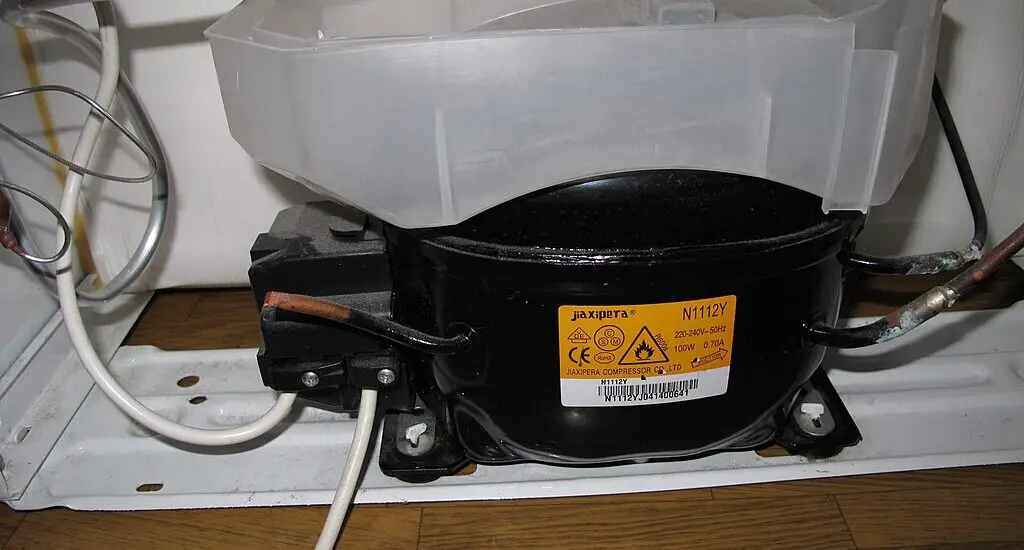If you’re puzzled by the question, “Do refrigerator compressors get hot?” the direct answer is yes. This expanded guide will clarify why that happens, when it could be a cause for concern, and what preventative measures you can take.

Table of Contents
Why Do Refrigerator Compressors Get Hot?
The refrigerator compressor has the essential job of pressurizing low-pressure gas into a high-pressure form. This process is energy-intensive, requiring electrical energy to be converted into mechanical energy. During this conversion, heat is generated as a byproduct.
To understand this, think of the compressor as a pump. Just as a water pump gets warm when it’s actively pushing water, the compressor heats up while pushing refrigerant gas through the coils. The heat, therefore, is an indicator that the compressor is functioning as it should.
Is It Normal or Cause for Concern?
A warm or even slightly hot compressor is generally a normal occurrence. It’s a part of its daily operation. However, temperature levels can vary based on factors such as the age of the refrigerator, the model, and the ambient temperature around it.
Excessive heat may be indicative of issues like blocked airflow due to dust and debris surrounding the appliance, dirty condenser coils, or insufficient refrigerant. In such scenarios, you might face a breakdown if the issue isn’t resolved promptly.
When Should You Be Worried?
If the compressor is too hot to touch and remains so even when the refrigerator has been off for a while, then it is a reason for concern. These are not normal signs and could indicate severe problems like a failing compressor fan, electrical issues, or a refrigerant leak. All of these problems require immediate professional attention to prevent permanent damage to the refrigerator.
Check out these other articles…
Is My Refrigerator Compressor Working? 6 Steps to Find Out
Are Refrigerator Compressors Recyclable? Detailed Answer
Are Fridge Compressors Dangerous? The Facts You Need to Know
Is It Worth Replacing Compressor on Refrigerator? Answered
Can a Refrigerator Compressor Explode? What Experts Say
How to Check the Compressor’s Temperature
Checking the temperature of the compressor requires a careful approach.
First, turn off the refrigerator and unplug it from the wall socket for safety reasons.
Wait for a few minutes to allow any residual electrical charge to dissipate. You can then cautiously touch the compressor. If it feels warm, that’s usually okay.
For a more scientific approach, use an infrared thermometer to gauge the exact temperature. A reading between room temperature and mildly warm is typically normal. If it’s hot, consult a technician.
Check out this Infrared Thermometer, Digital IR Laser Thermometer Temperature Gun listed on Amazon.
Preventative Measures to Keep Your Compressor Cool
Maintenance is crucial for ensuring your compressor stays within a safe temperature range.
Firstly, maintain adequate space around the refrigerator to allow heat to dissipate. A clearance of at least 2-3 inches on each side is recommended.
Secondly, the condenser coils should be cleaned regularly, ideally every 6 months, to remove dust and debris. This improves efficiency and reduces heat. Lastly, pay attention to how you stock your fridge. An overly full or nearly empty fridge can force the compressor to work harder, leading to unnecessary heat generation.